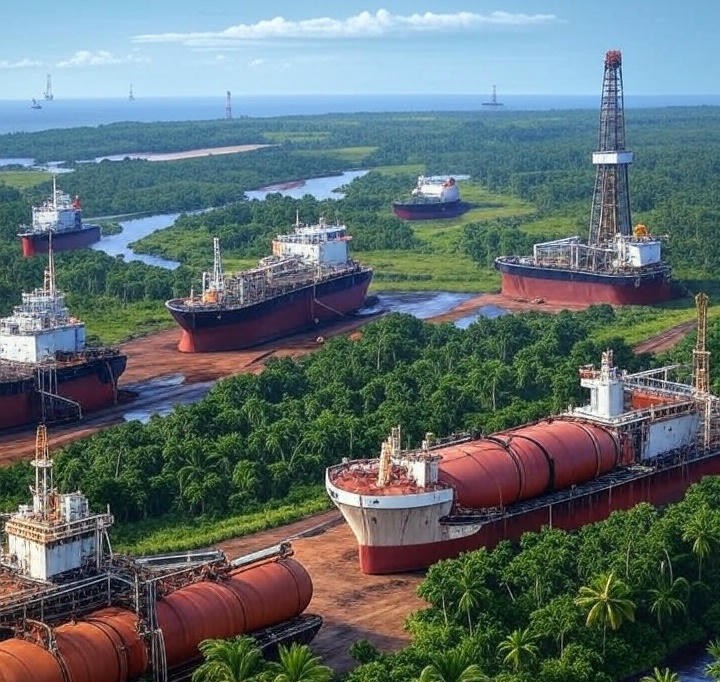When people think of big oil countries they often think of Saudi Arabia the United States, Russia or Venezuela. But now a small South American country is making big headlines in the oil industry. That country is Guyana — a place that many people had never even heard of until recently. But now it’s being called the next big thing in oil.

A Giant Discovery
In 2015 ExxonMobil and its partners made a huge discovery off the coast of Guyana. They found over 11 billion barrels of proven oil reserves in the deep waters of the Atlantic Ocean. This was one of the biggest oil finds in the world in recent years.
To put it in perspective Guyana has a population of only about 800000 people. Yet it now has more oil per person than almost any other country in the world. The value of these reserves is estimated to be over half a trillion dollars.
From Poor to Rich?
Before the oil discovery Guyana was one of the poorest countries in South America. It relied mostly on farming, mining and small scale industries. Its economy was small and growing slowly.
But now things are changing fast. Thanks to oil Guyana’s economy is booming. In fact it was the fastest growing economy in the world in 2022 with over 60% GDP growth. That kind of growth is almost unheard of.
The country has already started exporting oil. As of now, it produces over 600000 barrels of oil per day and this number is expected to increase to over 1 million barrels per day by 2027. That would make Guyana one of the top 20 oil producers in the world.
How Is Guyana Managing This Growth?
Managing such sudden wealth is not easy. Many countries that discovered oil quickly became rich but then faced problems like corruption, environmental damage or over dependence on oil. This is often called the “resource curse.”
However Guyana is trying to avoid these mistakes. The government has set up a Natural Resource Fund (NRF) to save and invest oil earnings. They are also trying to improve infrastructure, education and healthcare with the new money.
International organizations like the IMF and World Bank are helping Guyana plan carefully. The goal is to make sure oil benefits all citizens not just a few.
Challenges Ahead
Even with all the good news there are still many challenges.
- Corruption and Governance: Guyana must keep its government transparent and honest. There are concerns about how oil contracts were signed and how revenues are used.
- Environmental Concerns: Extracting oil from the ocean can cause oil spills and hurt marine life. Guyana must ensure strong safety and environmental rules.
- Dependence on Oil: If Guyana depends too much on oil it could face problems if oil prices fall or if the world moves away from fossil fuels. The country must diversify its economy.
- Infrastructure and Services: Rapid growth means more demand for roads, schools, hospitals and other services. The country must build fast but smartly.
Global Interest in Guyana
Because of its oil many countries and companies are now interested in Guyana. The United States, China and Europe are watching closely. ExxonMobil, Hess and China’s CNOOC are already major players in the country’s oil fields.
Investors are also looking at other sectors like real estate, tourism and agriculture. Georgetown the capital city is seeing a real estate boom. Hotels, malls and new buildings are being constructed quickly.
What’s Next for Guyana?
If things go well Guyana could become one of the richest countries per person in Latin America. Oil money can help improve lives, reduce poverty and create a better future.
But success will depend on good leadership, smart planning and avoiding the mistakes that other oil rich countries have made.
Final Thoughts
Guyana is a small country with big potential. Its oil discovery is changing its future in ways no one expected. From being a quiet country in South America to becoming a key player in global energy Guyana’s rise is a story worth watching.
The world should cheer for Guyana but also remind it to grow wisely. With the right choices this tiny country could become a giant not just in oil but in development and prosperity.
